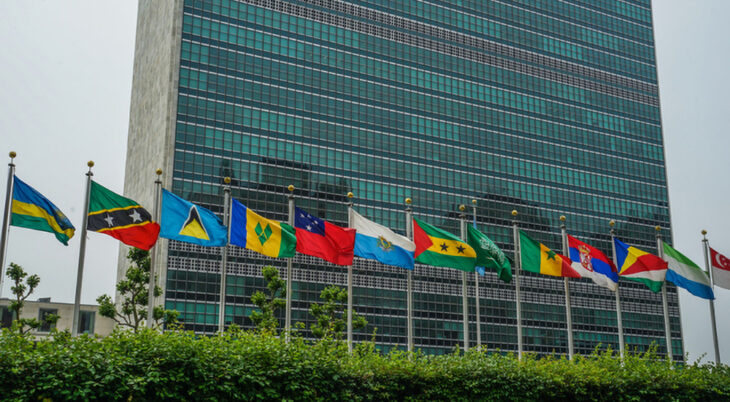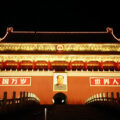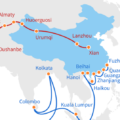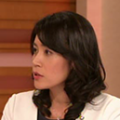Listening to the Non-Western Voices of International Society: The Historical Background to Diverse Viewpoints

“The vast majority of the daily media coverage on Ukraine originates from Western media outlets. However, there are many international opinions that are not reflected in these media reports…”
The vast majority of the daily media coverage on Ukraine originates from Western media outlets. However, there are many international opinions that are not reflected in these media reports. This article examines the various views held by non-G7 nations in light of the historical context from which they emerged.
Haneda Masashi, Director of Tokyo College, The University of Tokyo

Haneda Masashi,
Director of Tokyo College
In response to the Russian invasion of Ukraine that began on February 24, the Tokyo College of the University of Tokyo, where I serve as director, initiated an interview series in April entitled “The Ukraine Crisis: Perspectives From Around the World.” We invited researchers whose primary geographical areas of expertise are the Middle East, Africa, South Asia, China, Southeast Asia, and Latin America to comment on how the Russian invasion is perceived in their respective research regions. The video recordings of the interviews are available on the Tokyo College YouTube Channel (in Japanese, https://www.youtube.com/c/TokyoCollege/featured).
The idea for this project occurred to me at the end of March, one month after the invasion. At that time, the mass media was publishing detailed daily updates on the war situation and the damage incurred by various parts of Ukraine, as well as on the status of economic sanctions imposed by Western countries and Japan. It was also repeatedly argued that the Russian invasion violated the sovereignty of an internationally recognized independent state and was therefore unjustified; and that it was only natural that Japan, together with European countries and America (in other words, “working in close cooperation with the international community”), would impose economic sanctions on Russia. These arguments were widely supported. I myself concurred with the sentiment that the Russian invasion should be severely condemned. At the same time, however, I was not entirely satisfied with the reporting.
One reason for this was that the only reactions from “overseas” reported were those of the major European countries and America. As with other instances of one-sided media coverage, it is important to remember that international society consists of more than just Europe and America. The responses and attitudes of other nations must also be reported.
On a related note, the manner in which the information was communicated and analyzed is also problematic. One example is a report on the United Nations General Assembly (UNGA) held on March 2. At that meeting, the Resolution Condemning the Russian Invasion of Ukraine was adopted. However, media reports stated, “The majority of countries supported the resolution, with only five countries opposing it,” emphasizing Russia’s isolation from the international community. Indeed, the resolution received overwhelming support, with 141 out of 193 UN member states voting in favor. However, 52 countries, or more than a quarter of all UN member states, did not vote in favor of the resolution (5 opposed, 35 abstained, and 12 were absent). So why is it that many countries did not support the resolution despite the fact that the Russian invasion is manifestly unjustified? To assert that “international society is united in condemning Russia” without noting this point is surely naive.
China’s abstention from the vote attracted considerable media attention. However, major countries in South Asia (India, Pakistan, Bangladesh, and Sri Lanka) and many African countries also abstained. Why did these countries abstain, or others choose not to attend? I wanted to hear commentary from experts in regions other than North America and Europe. This is the motivation behind the idea for the interview series.
Differences in attitudes toward Russia as reflected in the UN resolution and economic sanctions
The six interviews were highly engaging and thought-provoking on many levels. These led me to conduct a short intensive review of the official records of the UNGA and attempt to summarize the responses of each country to the Russian invasion of Ukraine and assess their significance, drawing on my own expertise in my specialist area of global history. The main points that emerged are summarized below.
- The record of the statements[1] made by the country delegates at the UNGA leading up to the vote on the resolution condemning Russia on March 2 and 24 and the resolution to the Suspension of the rights of membership of the Russian Federation in the Human Rights Council on April 7 shows that many of the countries that abstained or were absent were also alarmed by this act of force. Many nations have also appealed for an immediate ceasefire or declared that no country should employ force to invade the territory of an internationally recognized state and violate its sovereignty. Nonetheless, these countries chose not to act in line with the G7 and the European countries led by the EU. According to the explanations provided by the experts in the interview series, there were also varying levels of enthusiasm among the countries that supported the resolution, with not all countries wholeheartedly in favor. In regions such as Latin America, which are geographically removed from active combat zones and have weak economic ties to the countries involved, interest in the issue was not particularly strong from the outset.
- In relation to point No. 1, the only countries imposing severe economic sanctions on Russia are the G7, European countries, and certain other nations that have close ties to the UK and the US (such as Australia, New Zealand, Singapore, and South Korea). Even if they support the resolution condemning Russia, many countries have not joined in sanctions. Sanctions by the G7 and European countries are more effective due to the size of their economies. It should be noted, however, that a significant number of countries are not participating in the sanctions (for example, Israel and UAE, which have always been considered to have close ties with the US).
- The above shows that the majority of the world’s nations have grave concerns about this war, but many of them have yet to join the camp of the G7 and European countries in advocating economic sanctions. The world is not divided into “Russia vs. the rest” to the extent that the Japanese media would have us believe. Aside from Ukraine and the European countries once faced with the threat of the former Soviet Union, the fundamental conflict has become “Russia versus G7.” Other countries are distancing themselves from both sides and adopting a wait-and-see approach.
- Historically, Russia and G7 (Canada is also a member country of the Commonwealth of Nations) were all colonial empires from the end of the 19th century to World War Two. One thing that this conflict has inadvertently brought to light is that the battle between the former empires is ongoing over a century later, albeit with a shift in the balance of power.
Sakai Keiko, a Japanese international politician, Iraqi expert, and professor at Chiba University, in her article “Shinko” wo meguru niju kijun—Yugamerareru kokusaikihan [Double standards for “invasion” — distorted international norms], published in the May 2022 issue of Ajia Jiho [Asian Journal], comments that whenever conflicts arise, these former empires have conveniently asserted the legitimacy of intervention and invasion and the “maintenance of the status quo” based on their own interests. The Greater East Asia Co-Prosperity Sphere in Japan and the “War on Terror” waged by the United States are pertinent examples of this. The current war and its underlying conflicts are an all too familiar picture for former empires and countries other than those involved in the conflict (close to nonaligned nations but tentatively referred to in this article as “non-Empire countries”). As such, it is unsurprising that these countries would seek to distance themselves from the conflict by choosing not to align themselves with Russia or the G7.
- The debate frequently highlights the proximity between Russia and China. In fact, however, the two differ in one major respect. Historically, Russia was always a former empire, even during the Soviet era, while China was subject to invasions by former empires from the end of the Qing Dynasty until the establishment of the People’s Republic of China. China’s abstention from the UN resolution, aside from being motivated by its geographical and political proximity to Russia, was surely intended to reaffirm its position as a non-empire country. The conflict between the US and China has received much media attention, with reports frequently stating that the outcome of the rivalry between these two major powers will determine the future course of the world. However, it is important to note that the conflict between these two nations could turn into a conflict between former empires and non-empire countries. China’s influence in non-empire countries must not be downplayed.
- Looking further back in history, it is clear that the former empires have not always occupied a position of global hegemony. Over the course of the last century and more, the former empires have been builders, destroyers, and re-builders of the world order. However, there is no guarantee that their power will remain intact, nor that the power relations between the former empires and non-empire countries will continue as before. After World War Two, non-empire countries that had been colonies or similar for the past hundred years transitioned into independent nations. And from the 21st century, a growing number of countries, such as China and India, are gaining significant economic and political power.
Toward a new world order emerging from the dialogue between former empires and non-empire countries
The foregoing points suggest that the current war signals the beginning of the end of an era in which disputes between former empires alone can determine the world order and norms. Over the course of the last century, many former empires have also undergone a transformation from empires with colonies to a new form of state founded on the concept of liberal democracy. It would be gratifying to see a new world order that is not imposed by former empires but is instead created through ongoing sincere and respectful dialogue with non-empire countries, based on a belief in the value of this ideology and polity.
Translated from “Obei igai no ‘Kokusaishakai’ no koe wo kiku: Tayosei no haigo ni aru rekishi keiken (Listening to the Non-Western Voices of International Society: The Historical Background to Diverse Viewpoints),” Gaiko (Diplomacy), Vol. 73 May/Jun. 2022, pp. 79-82. (Courtesy of Toshi Shuppan) [July 2022]
Keywords
- Haneda Masashi
- Tokyo College
- University of Tokyo
- Russia
- invasion
- Ukraine
- one-sided media coverage
- non-Western voices
- United Nations General Assembly
- UNGA
- Resolution Condemning the Russian Invasion of Ukraine
- economic sanctions
- Human Rights Council
- G7
- international society
- Sakai Keiko
- status quo
- global history
- former empires
- non-empire countries
- China
- United States




